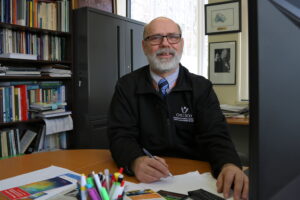British Columbia – Shortly after recent controversy over the Temporary Foreign Workers Program brought to light questions as to whether more oversight and higher transparency are really making it into Human Resources and Skills Development Canada’s (HRSDC) agenda – Canada’s Economic Action Plan is furthering its efforts to streamline yet another foreign workers program: the Foreign Credential Recognition Program.
Geoscientists Canada, a national council and self-governing association that regulates the geoscience industry in Canada, has recently been awarded $782,000 in funding from the Foreign Credential Recognition Program.
A latest press release by Human Resources and Skills Development Canada (HRSDC) reads, “Government of Canada helps internationally trained geoscientists get jobs in their fields faster.”
The HRSDC release states that the funds will be allocated towards the creation of “assessment tools to evaluate the education and work experience of internationally trained geoscientists applying to become licensed in Canada.”
The continued funding provided by the Harper administration with respect to skilled foreign workers within the mineral and oil & gas exploration sector, in particular, should be of no surprise to anyone.
The debate as to whether we should we be investing in education or going elsewhere within the international community to seek trained professionals seems to have fallen on deaf ears.
Ultimately, “we have an aging population,” says Oliver Bonham, Chief Executive Officer of GeoScientists Canada. “A lot of individuals working in a lot of professions, not just geoscience, will be retiring in the next 10 or 15 years. The need to attract talent and bring in people with skills into Canada is quite significant.”
Bonham states that while “the resources sector in Canada is an active sector… places like Vancouver and Toronto, are major centers globally for mines and mineral exploration. You have a lot of companies based in Vancouver that operate on projects all over the world. Likewise, Calgary is a major sector for oil and gas activity.”
The HRSDC has commented that the Foreign Credential Recognition Program is in fact being “streamlined for key occupations including engineers”. However, its mandate has been much broader.
According to sources at the HRSDC, the Foreign Credential Recognition Program is being restructured in order that “internationally trained professionals in these priority occupations can have their qualifications assessed within one year, anywhere in Canada. They may also be advised of additional requirements or be directed to alternative occupations that would benefit from their skills and experience.”
However, their needs to be a balance between bringing in international talent and providing sufficient oversight and transparency for programs developed in collaboration with the HRSDC. Canadian workers should be brought into the discussion surrounding these projected dearths of qualified workers. While it may be necessary to bring in temporary foreign workers at times; there are certainly many Canadian workers, trained in other professions that could most easily be re-trained to meet the labour trends. These workers would most assuredly be happy to know where the gaps in employment and education lie and to be provided the chance to fill those needs. Unfortunately, this doesn’t seem to be entirely the case.









